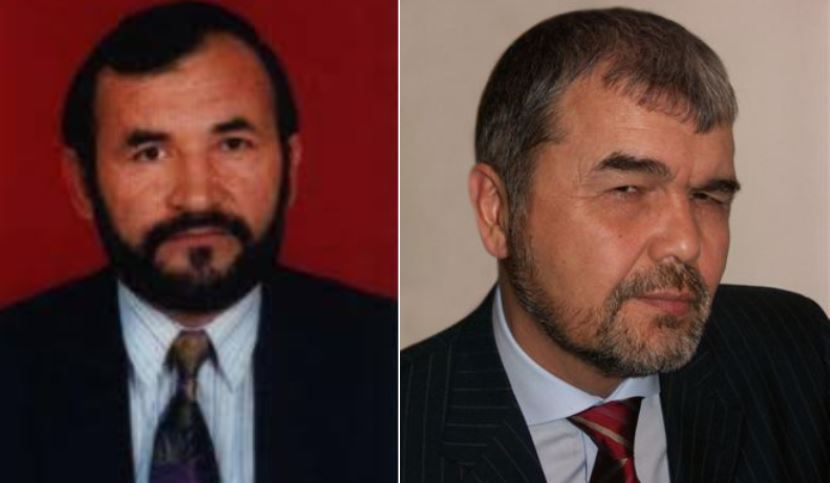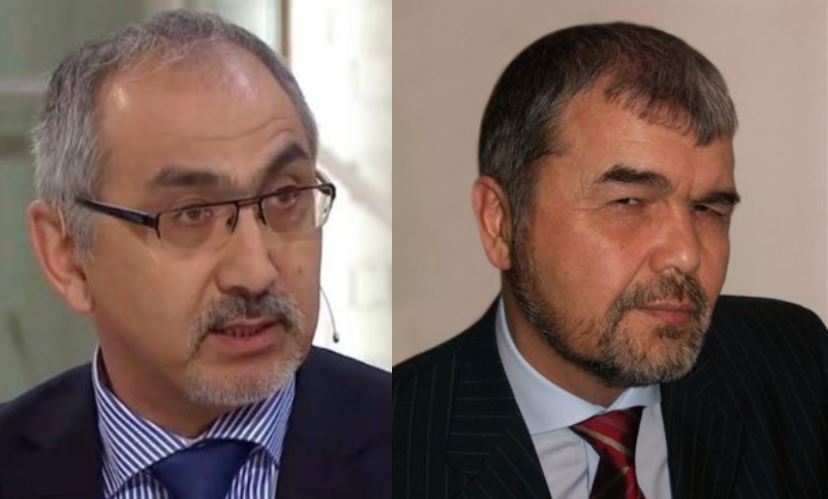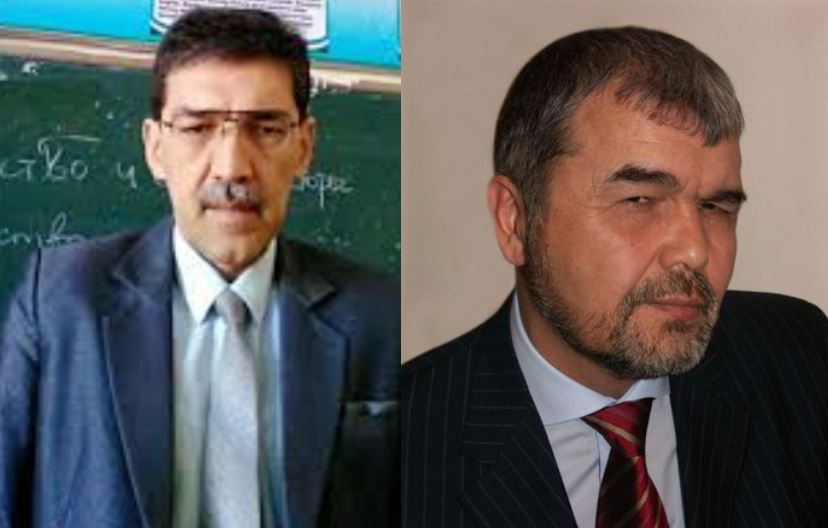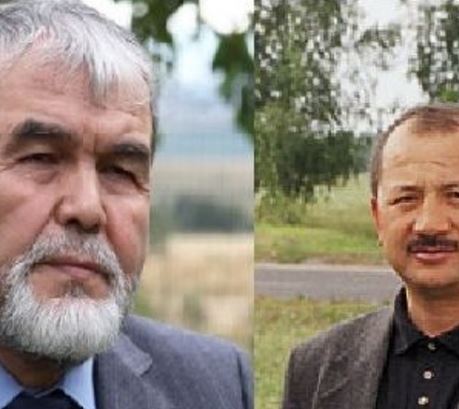International Human Rights Organizations “Fiery Hearts Club” and Committee on the Protection of Refugees
As it is known, on April 22-24 at the UN headquarters in Geneva Human Rights Council will discuss the human rights situation in Uzbekistan and Turkmenistan for last four and a half years.
June 1, 2012, the UN Committee against Torture at its 48th session adopted a decision on the extradition of 29 persons to the Republic of Uzbekistan by authorities of the Republic of Kazakhstan on the General Prosecutor’s Office’s request. As is known, in its decision, the UN Committee against Torture has obliged the authorities of the Republic of Kazakhstan to secure the return of all 29 persons extradited from Kazakhstan to Uzbekistan and pay compensation.
But the Kazakh authorities have not fulfilled their obligations assigned by the UN Committee against Torture, and all 29 persons extradited to Uzbekistan are languishing in penitentiaries in the country.
With regard to this situation, we ask the UN Human Rights Council and responsible UN committees to give a legal assessment of the actions of the Government of the Republic of Kazakhstan and the documents which they submitted to the Committee against Torture.
On the decision of the UN Committee against Torture, issued at the 48th session in 01.06.2012 regarding extradition of 29 persons to Uzbekistan, the General Prosecutor of the Republic of Kazakhstan reported that a group of employees of the diplomatic service of Kazakhstan visited a number of prisons in Uzbekistan, which allegedly met there with some of the extradited persons (18 persons).
The purpose of these meetings was to clarify the situation regarding the rights of prisoners, their conditions, the possible use of illegal measures of physical or psychological pressure during the investigation, trial and punishment, and if there are complaints regarding the use of torture and other cruel, inhuman or degrading treatment or punishment.
Allegedly, all convicted said to the Kazakh diplomat that Uzbek law enforcement agencies not applied torture, illegal measures of physical and mental pressure, or other unlawful methods of investigation during the investigation and trial of criminal cases. Each was provided with counsel (a lawyer); additionally all of them were allowed to hire private lawyers. Prisoners did not have complaints on prison conditions, nutrition, and healthcare.
At the end of the meeting each of the convicts has written a statement to the Committee confirming the expressed views. Additionally, diplomats requested inspection of extradited prisoners for possible signs of beatings and torture. No injury was found. The meeting also established that all convicted regularly have meetings with relatives, receive parcels, foodstuff, according to the internal regulations.
After such a declaration of Kazakh diplomats, who met with extradited refugees, about our country – Uzbekistan is unrecognisable!
We even began to doubt the sincerity of the UN Special Rapporteur on Torture, Mr. Theo van Boven and the UN Committee against Torture.
After inspection of PO Uzbekistan conducted in late 2002 first came to the conclusion that torture and other ill-treatment of detainees, defendants and prisoners is widespread and systematically used at police stations, investigation facilities and penal colonies. After hearing the official reports of the Government of Uzbekistan and alternative reports of human rights organizations (May 2002 and November 2007) latter came to the same conclusion as Mr. Theo van Boven.
We declare that cruel and inhumane torture and other ill-treatment of detainees, defendants and prisoners in police stations, investigation facilities and penal colonies did not stop even after 2007!
We are able to provide the attention of international organizations such as the UN Committee against Torture, the hundreds of documents that confirm the facts of the brutal torture and abuse of detainees, defendants and prisoners. And today it is not uncommon to return bodies of people killed in police stations, investigation facilities and penal colonies to their relatives.
We do not believe to a single word of Kazakh diplomats that in Uzbek penitentiaries everything is OK and to the staff of the Uzbek penal administration we do not believe even more.
Recently the International Committee of the Red Cross announced that it was forced to stop its operations in Uzbekistan due to the fact that there is no opportunity in this country to adhere to the international standards, which the organization is guided. ICRC came to this decision, because the authorities put different obstacles on prison visits and meetings with prisoners and therefore it is possible to objectively evaluate what are the conditions of detention. This is not an opinion of a simple layman, but the well-known international organization.
This once again confirms the conclusion of the UN Special Rapporteur on torture, Mr. Theo van Boven that in investigation facilities and penal colonies in Uzbekistan torture is widespread and used systematically (2003). The subsequent question: why the Uzbek authorities have so easily allowed the Kazakh diplomats to visit their prisons, while they are afraid of prying eyes as if from fire?
We believe that all the documents submitted by the General Prosecutor’s Office of Kazakhstan to the UN Committee against Torture are fabricated.
First, while the Kazakh diplomats in Uzbekistan “worked” between 3 and 14 August, in fact twelve days, the penitentiaries they “visited” in just three days: 6 – 8 August. That is four penitentiaries per day, which are scattered throughout the country and distance between them hundreds of kilometres. For example, on August 8 Kazakh diplomats met with Abdusamatov Toirjon, Khoshimov Alisher, Khurramov Sarvar, Turaev Ravshan and Yakubov Abduazimhodja in Remand Center-1 in Tashkent. On the same day they met with Nurillaev Bahriddin in penitentiary UY 64/65 (Zangiota village, Tashkent province), with Talipov Sirojiddin in UY 64/3 (Tavaksay village, Tashkent province), with Botirov Shuhrat, Nurillaev Bakhtiyor and Sulaimanov Tursunbai in UY 64/29 (Navoiy province), Pardaev Isobek in UY 64/47 (Kiziltepa city, Navoiy province).
Can there be such super speed movements of diplomats, meeting with prisoners and learning condition of imprisonment? Talk to each of them? Incredible! And extremely doubtful!
Second, statements of extradited persons, with whom the Kazakh diplomats met, to the UN Committee against Torture extremely dubious: all applications are signed by senior prosecutor of 8- Department of the General Prosecutor of Kazakhstan A.Grigorev, which was not among diplomats who met with the extradited persons in penitentiaries of Uzbekistan. It would be logical, if statements of the prisoners were signed by diplomats from Kazakhstan, who actually met with them, and it would be confirmation of the fact of the meeting. But none of the statements was signed by any of the diplomats, which allows us to claim that there was no visit of penitentiaries of Uzbekistan by Kazakh diplomats, i.e. visits of extradited persons by Kazakh diplomats and their extradition is conspired by Uzbek and Kazakh law enforcement services.
Third, 16 of the 18 statements of the extradited persons were written in Russian. Only two – Shodiev Akmal and Bozorov Suhrob – wrote statements in Uzbek. All 29 refugees during their application to the UNHCR in Kazakhstan for refugee status and other procedures asked for interpreter, because of ignorance of the Russian language. It is striking that Khurramov Sarvar, Khoshimov Alisher, Yakubov Abduazimhodja, Turaev Ravshan, Abdusamatov Toirjon, Talipov Sirojiddin wrote their applications in Russian perfectly competently, without any mistakes. Even more suggestive of the fact that 9 out of 16 statements are written in Russian, in the form of pre-prepared single form, only the names of the prisoners, their signatures, and state penitentiary numbers and dates filled in the designated blank spaces. Draws the attention the statements of Abdusamatov Toirjon and Talipov Sirojiddin, who are serving in various penitentiaries (UY 64/RC-1 and UY 64/3, respectively), where at the end of the text on the first page has the same postscript “look at overleaf” («см.на обороте»).
One should pay attention to the following fact. Serving a prison term in penitentiary UY 64/51 (Karshi city) Kurbanov Kobiljon in his statement to the UN Committee against Torture concludes as following: “Medical care and food is excellent. I love my country of Uzbekistan.” It must be recalled that his son-in-law Sobirjon Muhtarov in September 3, 2009 was brutally murdered while in custody of the National Security Council (NSC) during interrogation, his body has not yet been returned to his relatives. That pathos that K.Kurbonov finished his statement, in our opinion due to the fact that he had been threatened of extermination as his son-in-law, he was very frightened, and the statement written under dictation.
Fourth, the General Prosecutor of Kazakhstan said: “… due to the investigations with 7 extradited persons (Akbarov F.K., Boltaev A.A., Kasimov A.M., Ostonov U.H., Kholturaev O.M., Karimov D.D. and Holboev Sh.B.), according to the representatives of the Uzbek side, visiting them postponed to a later date. Additional information about their results will be sent to the Committee upon receipt of the relevant information from the Ministry of Foreign Affairs of the Republic of Kazakhstan.” Explicit disinformation! We, knowing lowdown on the investigative authorities and penitentiary in Uzbekistan, declare that government intentionally hide the above mentioned seven extradited persons from others, because:
1) either they are disfigured or lost their minds from physical torture and beatings, or exhausted from hunger;
2) or they are in special camp UY 64/71 near the village of “Jaslyk” in the Republic of Karakalpakstan, which Mr. Theo van Boven, in his report demanded that the government of Uzbekistan to close.
We know for certain that representatives of the government of Kazakhstan met one of the above-mentioned seven prisoners Ostonov Ulugbekserving in UY 64/71 in Jaslyk. But he is not in the list of prisoners whom they met with. For what purpose Kazakh diplomats hid the fact of their meeting with Ostonov Ulugbek?
The fact is, penitentiary UY 64/71 the most distant colony from Tashkent (1500 km), in an environmentally unfriendly territory, on Ustyurt Plateau near the Aral Sea. Uzbek authorities did not allow even Mr. Theo van Boven, when he flew there in order to inspect it in December 2002. It was created in 1997 specifically for the members of the religious and the political opposition, and this explains the choice of the location of the camp, its distance from major population centres. Any mentioning of this penitentiary internationally seriously annoys the authorities.
We believe that from beginning the government of Kazakhstan, in the extradition of 29 Uzbek refugees, entered into a criminal conspiracy with the government of Uzbekistan, roughly and unceremoniously violating known international documents on refugees.
In the actions of the General Prosecutor of Kazakhstan, which has did on the execution of the decision of the UN Committee against Torture on 29 refugees from Uzbekistan, we see only the following scenario:
Formally, the “meeting” of Kazakh diplomats with 18 extradited or less took place, but only in one penitentiary, namely UY 64/RC-1 (Tashkent prison), where 18 extradited persons (most likely a smaller portion) were transferred. The statements were signed by the prisoners under threats, beatings and torture, than this “documents” were delivered on chain: Kazakhstan Embassy in Tashkent, the General Prosecutor of Kazakhstan, the UN Committee against Torture.
Only by this it can be explained a number of inconsistencies in the “meetings” of Kazakh diplomats with 18 extradited Uzbek refugees in penitentiaries in Uzbekistan.
The list of refugees in detention with whom Kazakh officials “met”, according to them, is attached separately.
Signatures:
Mutabar Tadjibayeva,
Head of the International Human Rights Organization “Fiery Hearts Club”
Association IDDH “Club des Coeurs Ardents”
Awards: “Martin Ennals Award”, “Liberty, Equality, Fraternity” Human Rights Prize, France.
Tел: mob +33 679233927; Office +33950147342; E-mail: mutabartadjibaeva@gmail.com
Talib Yakubov,
Vice-President of the Human Rights Society of Uzbekistan, Angers, France.
Tel.: +33 241667961 E-mail: vbaelleon@gmail.com
Ismail Dadajanov,
President of the Democratic Forum of Uzbekistan. Helsingborg, Sweden
Tel.: +46 424993383 E-mail: uzbek55@mail.ru
Kamoliddin Rabbimov,
Political Scientist, Head of the Political Research Centre «LIGLIS-CENTER», France
Tel.: +33 622418665 E-mail: kmr.uzb@gmail.com
Akmal Khaydarov,
Human rights activist, Canada, Tel: 0014033936346
Hasan Temirov,
Human rights activist, Sweden, email: kompis76@gmail.com





